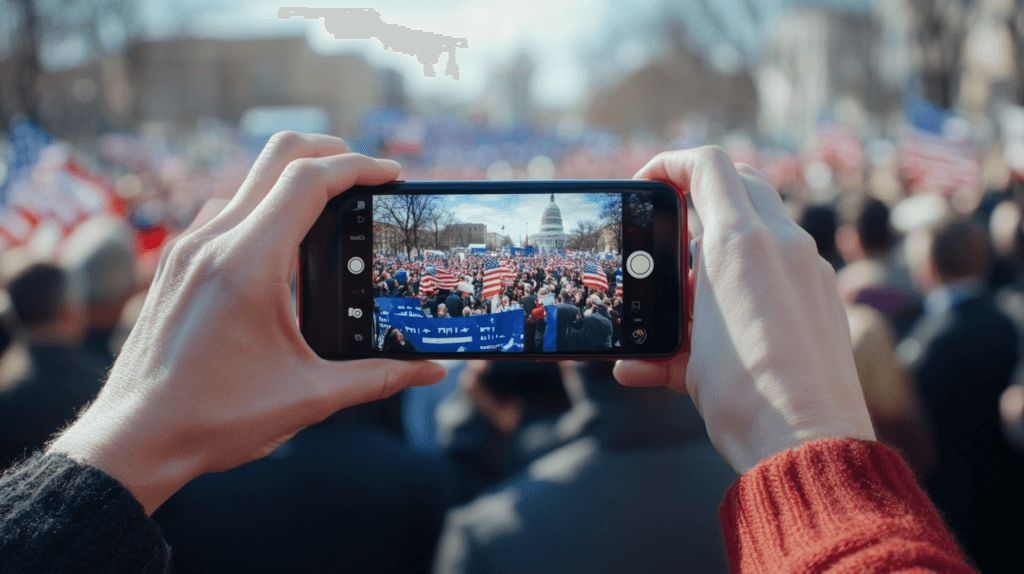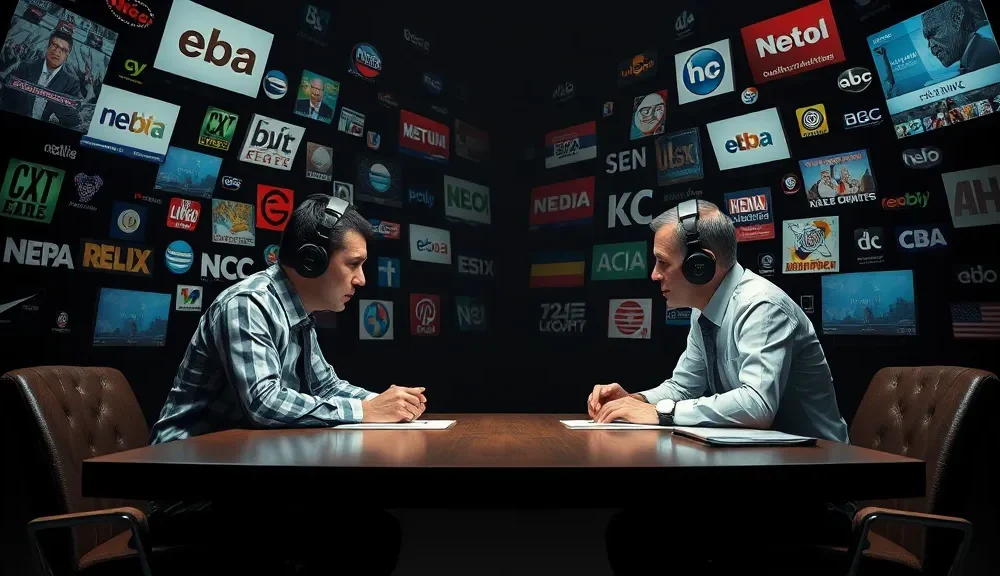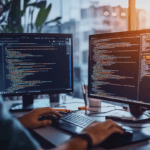Social Media and the Political Landscape: Influence, Disinformation, and the Future of Democracy
Social media has transformed the way we communicate, interact, and even engage with politics. Over the past decade, platforms like Facebook, Twitter, TikTok, and Instagram have become powerful tools for political discourse, organizing movements, and even influencing elections. However, with great influence comes significant challenges, including the spread of disinformation, polarization, and the potential erosion of democratic values. In this article, we will explore the impact of social media on the political landscape, its role in spreading influence and disinformation, and what the future holds for democracy in this digital age.
The Role of Social Media in Modern Politics
Social media has emerged as a powerful force in shaping the political landscape, with its ability to connect people, spread messages rapidly, and amplify voices that might otherwise be marginalized. It has fundamentally changed the way politicians campaign, how citizens engage with political content, and even how elections are influenced.
1. Political Campaigns and Social Media
In the digital age, social media has become a crucial tool for political campaigns. Politicians use platforms like Twitter, Facebook, and TikTok to share their messages, connect with voters, and mobilize support.
- Direct Communication: Social media allows politicians to bypass traditional media outlets and communicate directly with their audience. This gives them more control over their message and helps them reach voters without the filter of traditional news media.
- Targeted Advertising: Platforms like Facebook and Instagram offer sophisticated ad targeting tools that allow political campaigns to reach specific demographics. This targeted approach enables campaigns to deliver personalized messages to different segments of the population, increasing the likelihood of engagement.
2. Citizen Engagement and Activism
Social media has also given citizens a platform to participate in political discourse and activism. People can easily share their opinions, join political movements, and mobilize others for causes they believe in.
- Grassroots Movements: Social media has been instrumental in the rise of grassroots movements, allowing individuals to organize protests and rallies. Examples include the Arab Spring, the Black Lives Matter movement, and climate change protests led by youth activists like Greta Thunberg.
- Amplification of Voices: Social media has provided a platform for marginalized voices to be heard. Activists and community leaders can use social media to bring attention to issues that are often overlooked by mainstream media.
3. Real-Time Information Sharing
Social media platforms have become a primary source of news for many people. The ability to share real-time updates makes social media a valuable tool for staying informed about political events, election results, and breaking news.
- Speed of Information: Social media platforms enable the rapid spread of information, allowing users to stay up-to-date on current events as they happen.
- Citizen Journalism: Social media has also enabled the rise of citizen journalism, where individuals can report on events in their communities. This has led to increased transparency and accountability but has also raised concerns about the accuracy of information.

The Spread of Disinformation and Its Impact on Politics
While social media has democratized access to information and political discourse, it has also created fertile ground for the spread of disinformation. Disinformation campaigns can have a profound impact on public opinion, election outcomes, and trust in democratic institutions.
1. What Is Disinformation?
Disinformation refers to false or misleading information that is deliberately spread to deceive people. Unlike misinformation, which is incorrect information shared without malicious intent, disinformation is designed to manipulate public perception for political or ideological purposes.
- Fake News: Disinformation often takes the form of “fake news”—fabricated stories that are designed to look like legitimate news articles. These stories are spread to influence public opinion, discredit political opponents, or create confusion.
- Deepfakes: Advances in technology have led to the creation of deepfake videos, which use AI to create realistic but fake videos of politicians or public figures. Deepfakes are a powerful tool for disinformation, as they can be used to manipulate public perception.
2. Influence on Elections
Disinformation campaigns have been used to influence elections around the world, with social media platforms playing a central role in the spread of false information.
- 2016 U.S. Presidential Election: The 2016 U.S. Presidential election is a notable example of how disinformation can impact elections. Russian operatives used social media platforms to spread false information and sow discord among voters, contributing to the polarization of the electorate.
- Microtargeting: Political campaigns and foreign actors can use data from social media platforms to micro target specific groups of voters with tailored messages. This allows disinformation to be more effective, as it can be customized to appeal to particular demographics.
3. Erosion of Trust in Democratic Institutions
The spread of disinformation has contributed to an erosion of trust in democratic institutions. When people are bombarded with conflicting information and fake news, it becomes difficult to know what to believe. This has led to growing skepticism about the media, government, and even the electoral process.
- Polarization: Disinformation can exacerbate political polarization by spreading divisive content that reinforces existing beliefs. This creates echo chambers, where individuals are only exposed to information that aligns with their views, further deepening divisions.
- Undermining Trust: Disinformation campaigns often aim to undermine trust in democratic institutions by spreading conspiracy theories and false claims about election fraud, government corruption, or media bias.
The Future of Democracy in the Age of Social Media
As social media continues to shape political discourse and influence public opinion, questions arise about the future of democracy in this digital age. While social media has the potential to empower citizens and strengthen democratic participation, it also poses significant challenges that must be addressed.
1. Regulation and Accountability
One of the most pressing issues is how to regulate social media platforms to prevent the spread of disinformation while protecting freedom of speech.
- Platform Responsibility: Social media companies have faced criticism for their role in allowing disinformation to spread. Many platforms have introduced measures to combat false information, such as fact-checking labels, content moderation, and reducing the reach of misleading posts.
- Government Regulation: Governments around the world are exploring ways to regulate social media platforms to ensure accountability. This includes implementing transparency requirements for political ads, creating penalties for spreading disinformation, and requiring platforms to take down harmful content.
2. Media Literacy and Public Awareness
Educating the public about the dangers of disinformation and how to identify it is crucial for maintaining a healthy democracy. Media literacy programs can help individuals critically evaluate the information they encounter on social media and make informed decisions.
- Educational Initiatives: Schools and community organizations can play a key role in teaching media literacy skills, helping individuals understand how to spot fake news, deepfakes, and manipulated content.
- Fact-Checking Resources: Encouraging the use of fact-checking websites and tools can help individuals verify the accuracy of information before sharing it.
3. Leveraging Technology for Positive Change
While social media has its challenges, it also has the potential to be a force for positive change. By leveraging technology effectively, we can enhance civic engagement, hold leaders accountable, and promote transparency.
- Digital Town Halls: Social media can be used to host virtual town halls, where citizens can engage directly with political leaders, ask questions, and share their concerns.
- Crowdsourcing Solutions: Platforms can be used to crowdsource solutions to pressing social issues, allowing citizens to contribute ideas and collaborate on initiatives that benefit their communities.
Conclusion
Social media has revolutionized the political landscape, offering unprecedented opportunities for communication, activism, and engagement. However, it has also introduced significant challenges, particularly in the form of disinformation, political polarization, and the erosion of trust in democratic institutions. To ensure that social media serves as a force for positive change, it is essential to strike a balance between regulation, accountability, and the protection of free speech.
By promoting media literacy, encouraging responsible platform practices, and fostering open dialogue, we can harness the power of social media to strengthen democracy rather than undermine it. As we navigate the evolving digital landscape, it is up to governments, tech companies, and individuals to work together to safeguard the future of democracy in this interconnected world.




No Comment! Be the first one.